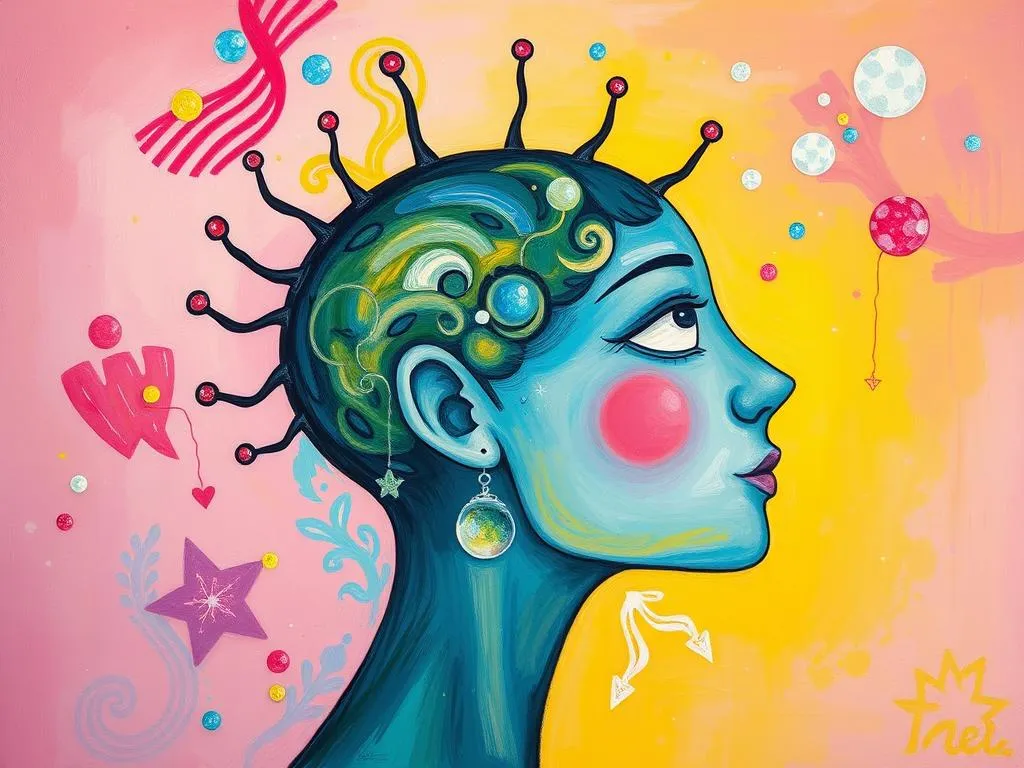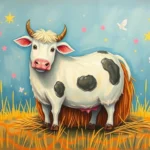
Dreams have long captivated the human mind, serving as portals into the subconscious. Within this mysterious realm, symbols emerge, often revealing hidden fears, desires, and insights about our waking lives. One particularly intriguing dream symbol is the scalp. This article explores the symbolism and meanings associated with dreaming of the scalp, the variations of these dreams, and how they connect to our daily experiences.
Symbolism and Meaning
The scalp in dreams often represents identity, self-image, and vulnerability. This part of the body is not only protective of our brain but also a canvas for our hair, which can symbolize our personality and how we present ourselves to the world. When the scalp appears in your dreams, it may be a reflection of how you perceive yourself or how you believe others perceive you.
In many cultures, hair is linked to power and femininity. For instance, in some traditions, long hair is seen as a sign of strength and beauty. Thus, dreaming of the scalp might evoke feelings about your own strength or beauty. Alternatively, it could symbolize a struggle with self-acceptance or a desire to express your true self. If your scalp is bare or damaged in the dream, it may indicate feelings of insecurity or a fear of losing your identity.
Another perspective on scalp dreams relates to intimacy and connection. The scalp is often massaged or touched during moments of comfort and care. Therefore, dreaming of the scalp could signify a yearning for emotional closeness or a need to nurture oneself. It invites you to consider if you are feeling isolated or if you need to foster deeper connections with others.
Key Scenarios and Variations
The context of your dream plays a crucial role in its interpretation. For example, dreaming of someone else touching or grooming your scalp might indicate an unconscious desire for support or validation from that person. Conversely, if you dream of grooming someone else’s scalp, it could suggest a need to care for others or a desire to take control in your relationships.
Another common scenario involves hair loss or baldness on the scalp. This can evoke feelings of loss, fear, or anxiety about aging or change. If you experience such a dream, consider how it relates to your current life circumstances. Are you facing a significant transition, or are you feeling overwhelmed by changes beyond your control? This dream may be prompting you to address those feelings head-on.
On the other hand, a dream of a healthy, lush scalp and hair might represent confidence, vitality, and a sense of well-being. It can serve as an affirmation of self-acceptance and personal growth. Reflecting on what aspects of your life align with this positive imagery can help you harness that energy in waking life.
Dreams where the scalp is covered in something unusual, like paint or unconventional accessories, can symbolize creativity or a desire to break free from societal norms. This could indicate that you are exploring new facets of your identity or seeking to express your individuality. Such dreams often invite you to embrace your uniqueness and challenge conventional expectations.
Lastly, dreaming of a scalp injury or discomfort might point to underlying stress or tension in your life. It can be a manifestation of mental or emotional strain, suggesting that you need to address these pressures before they escalate. Consider whether there are unresolved issues or feelings that require your attention.
Real-Life Connections and Takeaways
Connecting the themes and symbols of scalp dreams to your real life can yield valuable insights. To begin, reflect on your current self-image and how it might be influencing your relationships and experiences. Are there aspects of your identity that you feel need nurturing or acknowledgement? Journaling about these feelings can provide clarity and help you identify areas for personal growth.
If you find yourself dreaming about hair loss or scalp vulnerability, consider how this may relate to your everyday stressors. Are there situations in your life that make you feel exposed or insecure? Recognizing these sources of anxiety can empower you to confront them more effectively.
For those experiencing positive imagery related to the scalp, use this energy to fuel your pursuits. Engaging in creative activities or taking steps to enhance your well-being can be beneficial. Surround yourself with supportive people who affirm your strengths and encourage your journey of self-discovery.
Moreover, as you explore the deeper meanings of your dreams, remain open to the idea that they may offer guidance for your personal relationships. If you dream of nurturing or caring for another’s scalp, take time to assess the dynamics of your connections. Are there relationships that need more attention? Or perhaps you feel a call to support someone close to you?
Lastly, remember that dreams are inherently personal. While this article provides general interpretations, your unique experiences and emotions will ultimately shape the meaning of your dreams. Use these reflections as a springboard for deeper understanding and self-awareness.
Conclusion
Dreaming about the scalp can unveil profound insights into your self-image, emotional needs, and relationships. By delving into the symbolism and variations of these dreams, you can better understand how they connect to your waking life. Take time to reflect on your dreams, recognizing them as valuable tools for self-exploration and growth.
Embrace the opportunity to listen to your subconscious and uncover the secrets your dreams hold. As you engage with these reflections, allow them to guide you on your journey toward greater self-acceptance and emotional well-being. Ultimately, the scalp and its dreams serve as reminders of our innate desire for connection, identity, and understanding.







